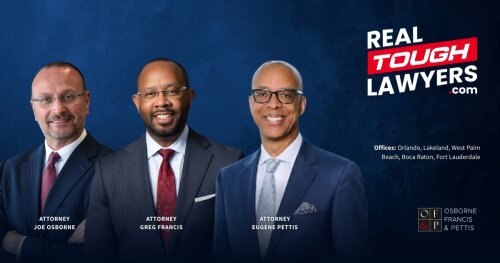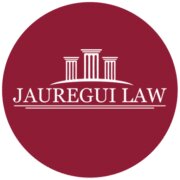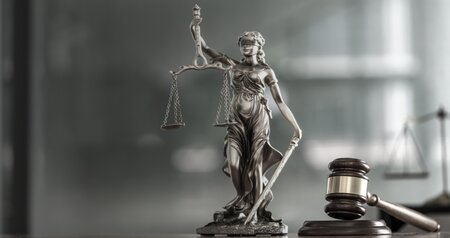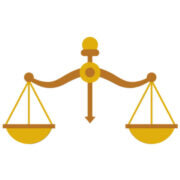Best Property Damage Lawyers in Florida
Share your needs with us, get contacted by law firms.
Free. Takes 2 min.
Or refine your search by selecting a city:
List of the best lawyers in Florida, United States
United States Property Damage Legal Questions answered by Lawyers
Browse our 1 legal question about Property Damage in United States and read the lawyer answers, or ask your own questions for free.
- MOVING COMPANY DAMAGED RENTAL HOME, FURNITURE AND NEW HOME
- MOVING COMPANY DAMAGED WALLS AND FURNITURE IN TWO HOUSES, THEY DIDNT USED PACKING BLANKETS OR MOVING EQUIPMENT, I FILED A DAMAGE CLAIM MID MOVE, AND RELIEVED THE WORKERS EARLY FROM SCHEDULED TIME TOOK PICS AND SUBMITTED TO THE MOVING COMPANY, NOW THE MOVING COMPANY IS INSINUATING WE CAUSED THE DAMAGE,... Read more →
-
Lawyer answer by T & A Legal
Hello, sorry about the damage to your walls and furniture. The moving company may be liable for a breach of contract or negligence. However, their liability will be determined largely by the contract between you and the moving company.Please note...
Read full answer
About Property Damage Law in Florida, United States
Property damage law in Florida refers to legal rules and processes that govern compensation for physical damage or loss to personal or real property. This can include vehicles, homes, businesses, or any other personal belongings that are damaged due to another party’s actions or negligence. Property damage cases can arise from car accidents, natural disasters, vandalism, construction defects, or other incidents. Florida law provides a framework to help individuals seek reimbursement or repair for their losses, but the process can often be complex due to insurance policies, statutes of limitations, and varying degrees of fault.
Why You May Need a Lawyer
While some property damage claims are straightforward, many situations require legal guidance. Here are some common scenarios where consulting a lawyer may be necessary:
- Your insurance claim is denied or undervalued.
- There is a dispute about who is at fault for the damage.
- The responsible party's insurance company refuses to pay the full amount needed for repairs or replacement.
- You suffered significant losses due to hurricanes, floods, or other natural disasters.
- There are complex legal or contract issues, such as landlord-tenant disputes or commercial property claims.
- You are being sued for allegedly causing property damage.
- You need to recover damages from a government entity or municipality.
An attorney can help explain your rights, gather essential evidence, deal with insurers, and represent you in settlement discussions or court proceedings.
Local Laws Overview
Florida has several laws and regulations that affect property damage claims:
- Statute of Limitations: For most property damage actions, you typically have four years from the date of the damage to file a lawsuit. However, you should act quickly, as certain claims, like those involving insurance, may have shorter deadlines.
- Comparative Fault: Florida uses a modified comparative negligence system. If both parties share fault for the damage, your compensation may be reduced according to your percentage of responsibility.
- Insurance Claims: Property owners are often required to file claims with their own insurance before pursuing further legal action. Florida law requires insurance companies to act in good faith when handling claims.
- Storm and Hurricane Damage: Florida is prone to severe weather events. State laws have special provisions regarding claims for hurricane, wind, and flood damage. There are also regulations for filing supplemental claims if more damage is discovered after initial repairs.
- Government Liability: Claims against state or local governments have strict notice requirements and limitations on damages, so it is important to act quickly.
Frequently Asked Questions
What should I do immediately after property damage occurs?
Document the damage with photos or videos as soon as it is safe. Notify your insurance company, secure your property from further harm, and keep records of any emergency repairs.
What types of property damage are commonly covered by insurance in Florida?
Most standard policies cover wind, fire, theft, and some types of water damage, but not floods. Flood insurance is usually a separate policy. Always review your coverage details for specific inclusions and exclusions.
How soon should I file a property damage claim in Florida?
You should file a claim as soon as possible after discovering the damage. Delays may result in denied claims or reduced compensation. There are also legal deadlines for filing lawsuits related to property damage.
Can I sue my insurance company if they deny my claim?
Yes, if you believe your insurer wrongfully denied or undervalued your claim, you can take legal action. Consult a lawyer to review your policy and discuss your options.
What happens if the property damage was caused by more than one party?
Florida's comparative fault rules may apply. Liability (and compensation) is divided among responsible parties according to their share of fault.
Do I have to accept the insurance company’s estimate for repairs?
No. You can seek independent repair estimates and negotiate. If you disagree with your insurer’s assessment, you may use the appraisal process defined in your policy, or consult legal counsel.
What if my property was damaged by a neighbor’s actions?
You may have a claim against your neighbor or their insurance, depending on the circumstances. Document the incident and speak with an attorney about your options.
Does Florida law treat hurricane damage claims differently?
Yes, hurricane and windstorm claims often have special deductibles and procedures under Florida law. Supplemental claims may be filed if more damage is later discovered.
Can I recover loss of use or other indirect damages?
Many insurance policies include coverage for "loss of use" or alternative living expenses if your home is uninhabitable. Check your policy and discuss with a lawyer if you have questions about what is covered.
What if the property damage was accidental or unintentional?
You can still seek compensation, but outcomes depend on the facts and applicable insurance policies. Fault or negligence is often a key factor in determining liability.
Additional Resources
The following resources can help you better understand your rights and responsibilities related to property damage in Florida:
- Florida Department of Financial Services - Assists with insurance-related questions and complaints.
- Florida Division of Consumer Services - Offers information and complaint resolution for consumers.
- Florida Bar Lawyer Referral Service - Connects you with local attorneys experienced in property damage law.
- Local County Clerk of Court - Provides information on small claims and civil court procedures.
- Federal Emergency Management Agency (FEMA) - Offers resources and assistance for storm and disaster-related property damage.
Next Steps
If you need legal assistance with a property damage issue in Florida, consider the following steps:
- Gather all relevant documents, such as insurance policies, repair estimates, photos, and correspondence.
- Contact your insurance company promptly and keep a record of all communications.
- If you have difficulties with your claim or need legal advice, consult with a lawyer who specializes in property damage cases in Florida.
- Use local bar association referral services or visit your county’s legal aid office if you need help finding an attorney.
- Be proactive. Deadlines apply, so act quickly to protect your rights and maximize your chances of a fair resolution.
Understanding your options and the relevant laws can make a significant difference in the outcome of your property damage claim. When in doubt, seek professional legal assistance to guide you through the process.
Lawzana helps you find the best lawyers and law firms in Florida through a curated and pre-screened list of qualified legal professionals. Our platform offers rankings and detailed profiles of attorneys and law firms, allowing you to compare based on practice areas, including Property Damage, experience, and client feedback.
Each profile includes a description of the firm's areas of practice, client reviews, team members and partners, year of establishment, spoken languages, office locations, contact information, social media presence, and any published articles or resources. Most firms on our platform speak English and are experienced in both local and international legal matters.
Get a quote from top-rated law firms in Florida, United States — quickly, securely, and without unnecessary hassle.
Disclaimer:
The information provided on this page is for general informational purposes only and does not constitute legal advice. While we strive to ensure the accuracy and relevance of the content, legal information may change over time, and interpretations of the law can vary. You should always consult with a qualified legal professional for advice specific to your situation.
We disclaim all liability for actions taken or not taken based on the content of this page. If you believe any information is incorrect or outdated, please contact us, and we will review and update it where appropriate.
Browse property damage law firms by city in Florida
Refine your search by selecting a city.















